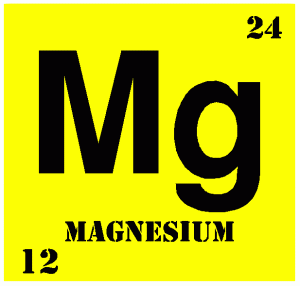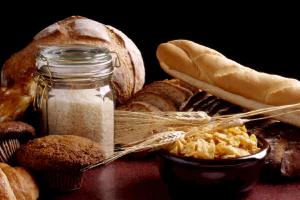 If you have watched television in the last couple of years, or read a magazine or listened to the radio, you most certainly have noticed ads for osteoporosis drugs like Boniva or Fosamax. These advertisements are usually endorsed by a well known celebrity, and promise protection against fractures when diet and exercise are not enough.
If you have watched television in the last couple of years, or read a magazine or listened to the radio, you most certainly have noticed ads for osteoporosis drugs like Boniva or Fosamax. These advertisements are usually endorsed by a well known celebrity, and promise protection against fractures when diet and exercise are not enough.This should have gone in Day 1 of “Health Bone Week”, but here it is all the same.
Your bones are dynamic structures composed of many different minerals which work together to support a strong system of your body’s structure. Your bones are constantly reconstructing themselves by removing unhealthy bone with brand new bone. Cells called osteoclasts are responsible for the breakdown of unhealthy bone, whereas the cells called osteoblasts are responsible for building new, healthy bone.
With osteoporosis drugs such as Boniva and Fosamax (which are known asbisphosphonates—chelating agents, their single phosphonate forms used also in detergents) bring the osteoclasts to kill themselves through what is known asapoptosis.
So, you have a drug which is killing cells that are naturally occurring to help break down unhealthy bone, leaving you with only the cells that are responsible for building new, denser bones. Sounds good? Well, many critics point out that just because a bone is getting denser, doesn’t necessarily mean it is stronger.
Osteoporosis Drug Side Effects
The side effects of these osteoporosis drugs are just starting to show themselves after the few years they have been out on the market, in a number of ways. Because the bone isn’t being rebuilt and repaired from due to the absence of osteoclasts, there is an increased risk for fracture.
At the 2010 conference of the American Academy of Orthopedic Surgeons, health concerns of the long term use of bisphosphonate s presented a point of increased bone fractures in patients taking these osteoporosis drugs for over 4 years. The studies shown presented a link between bisphosphonate s and weaker bones. More studies are showing that the bone, which is becoming denser due to the killing of the osteoclasts cells, are becoming more brittle over time, leading to hip and femur fractures.
There are also many studies showing the link between these drugs and heart disease.
A study in the Archives of Internal Medicine has shown that taking Fosamax, a popular bisphosphonate, increases the risk for stomach ulcers (2001). When taken with an anti-inflammatory drug, this risk is even greater.
The Journal of the American Dentistry published findings showing that bisphosphonates lead to a high risk of developing a disease of the jaw called osteonecrosis. This is where the bone in your jaw starts to die, and will then slowly rot! How scary is this?
More than 20 million people in America alone are taking osteoporosis drug medications, and that number is growing, despite the high amount of calcium intake and the advice of conventional medical doctors. What can we do to stop the number of people who are suffering, or will suffer from osteoporosis, and what can we do to reverse it, without taking drugs?
The Best “Cure” for Osteoporosis
The only “cure” we know of for osteoporosis is complete prevention. If you believe you may be at risk, then it is time to take preventative action NOW. You don’t want to be frail, in poor health and succumb to premature death due to this disease. But sadly, that is what is happening to many people. Take charge of your health and take preventative action now.
The best things you can do for your bones are things you probably are already doing. A healthy diet, like the one highlighted in Healthy Bone Week Day One, will ensure you are receiving the proper nutrients and minerals for the support of building stronger bones. Nutrition is just one of the keys to good health—not only for your bones, but for overall health (mind, body and emotionally).
Exercise is another key to good health. Again, not only will it benefit the growth of new bone due to the intense pressure you are putting on it through walking, strength training or cardio (weight helps strengthen the bone and muscle), but it can help you lose weight, increase clairty and focus and fight mild depression. Exercise and nutrition are truly great things.
With exercise, it is always best to speak to a trusted doctor so that you can find out how far you can push yourself. If you are suffering from osteoporosis and are wanting to start an exercise program, you want to make sure how much pressure you can put on yourself. Over time, you will be able to build up the amount of intensity in your exercise program when your bones become stronger.
Vitamin D, a truly remarkable vitamin, is also an absolute necessity for good bone health. It helps facilitate the absorption of calcium in your system, and also helps in blood sugar metabolism (high insulin levels, over time, has been associated with an increase risk for bone loss).
__________________________________________________________________________________________
In Day Three of Healthy Bone week, I will describe certain exercises that can be done to help build stronger bones. Before then, read my blog post about exercise. There is quite a surprise in this post that you might not see coming, but may be incredibly helpful in strengthening bones and muscles. Stay tuned.
For now, this is The Healthy Advocate.
P.S. Be sure to check out this video that I did on eggshells and how you can use them in your diet for a bioavailble source of calcium. If you don’t consume dairy products, local, free range and organic egg shells may be a good option. You can also read the blog post about eggshells I did here.








